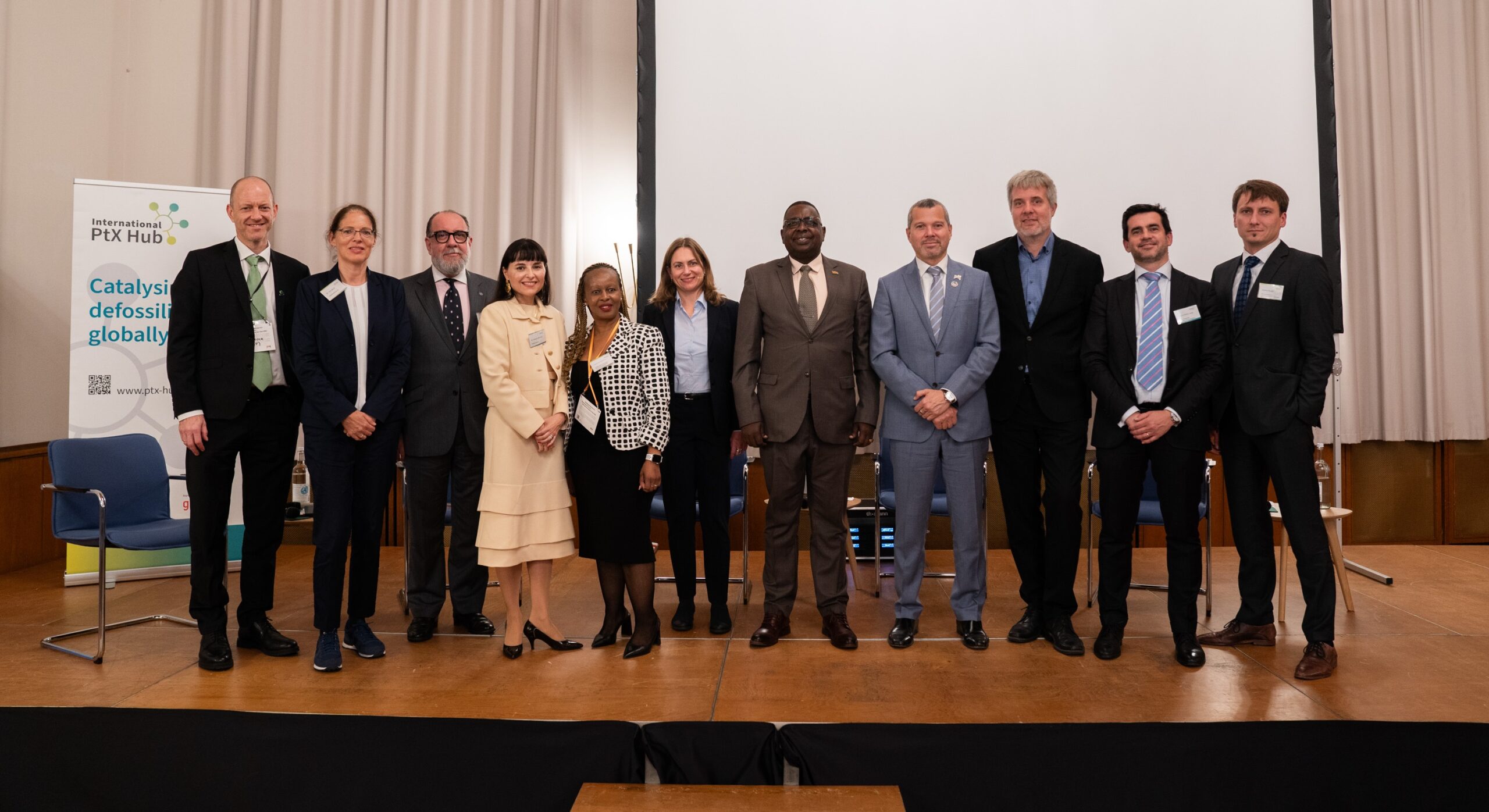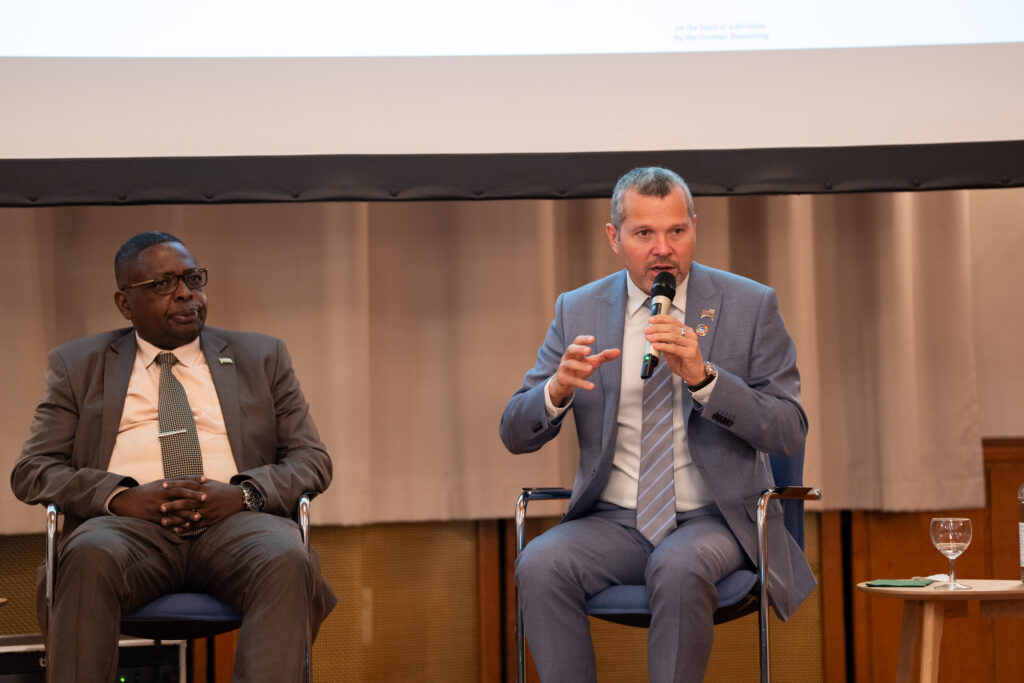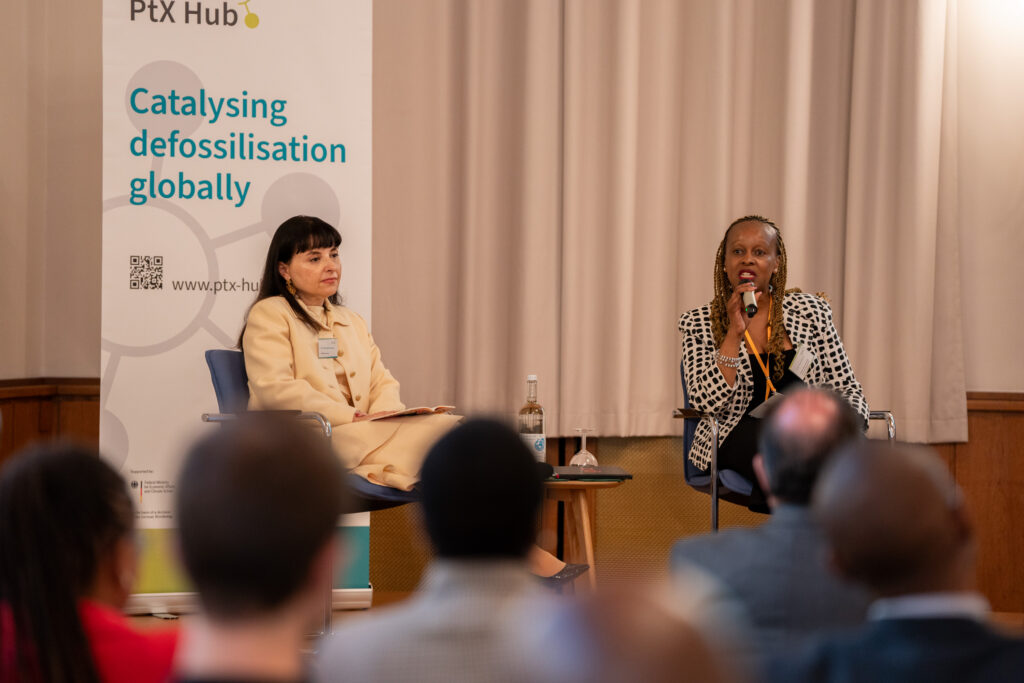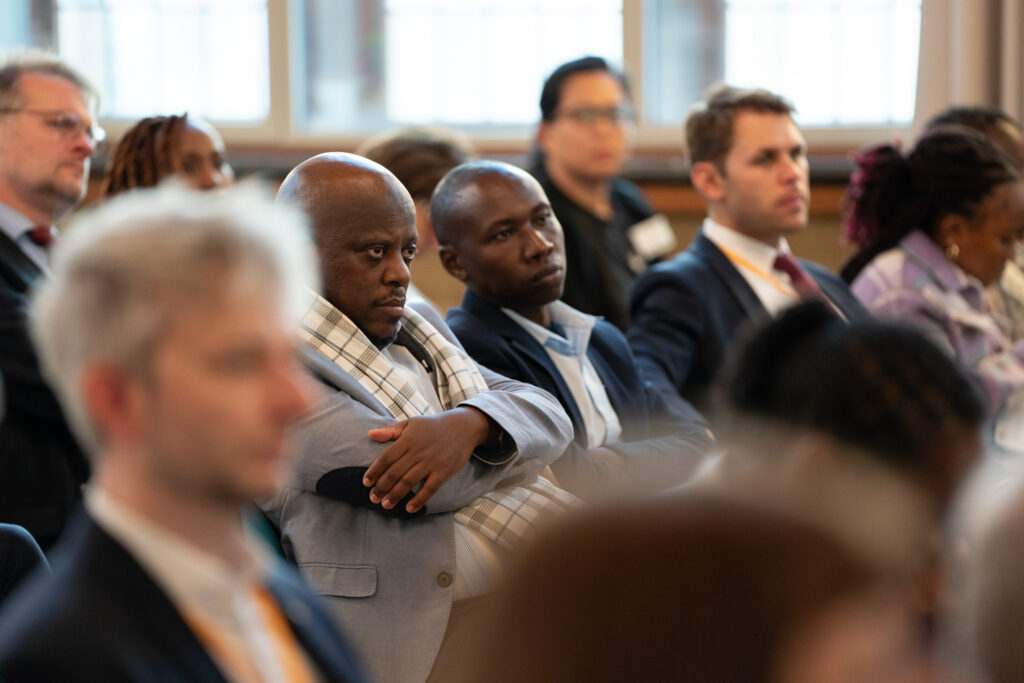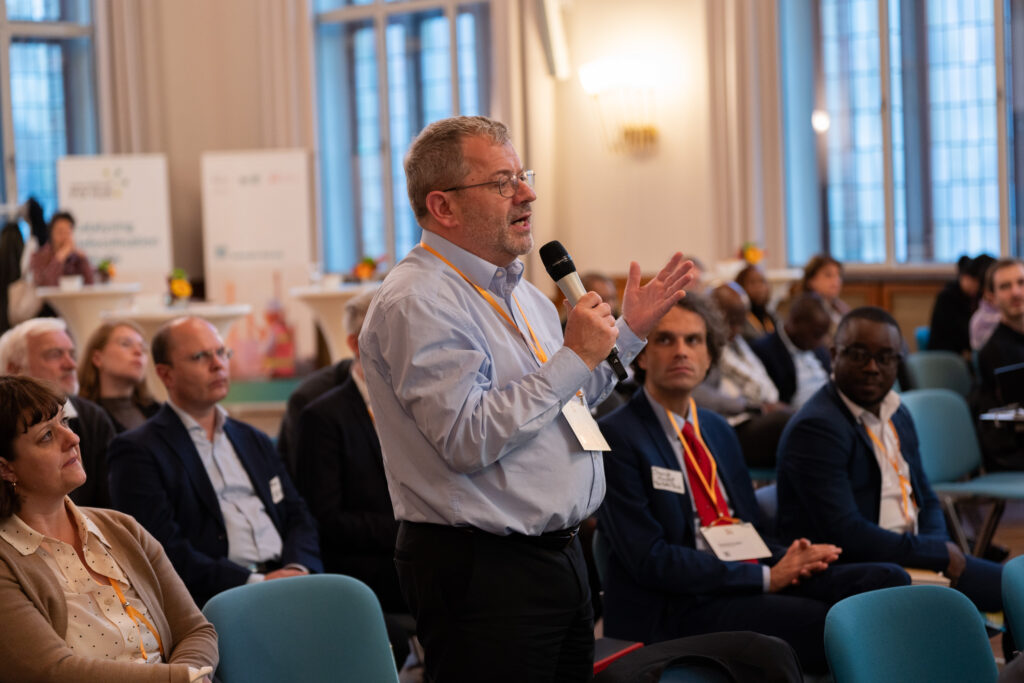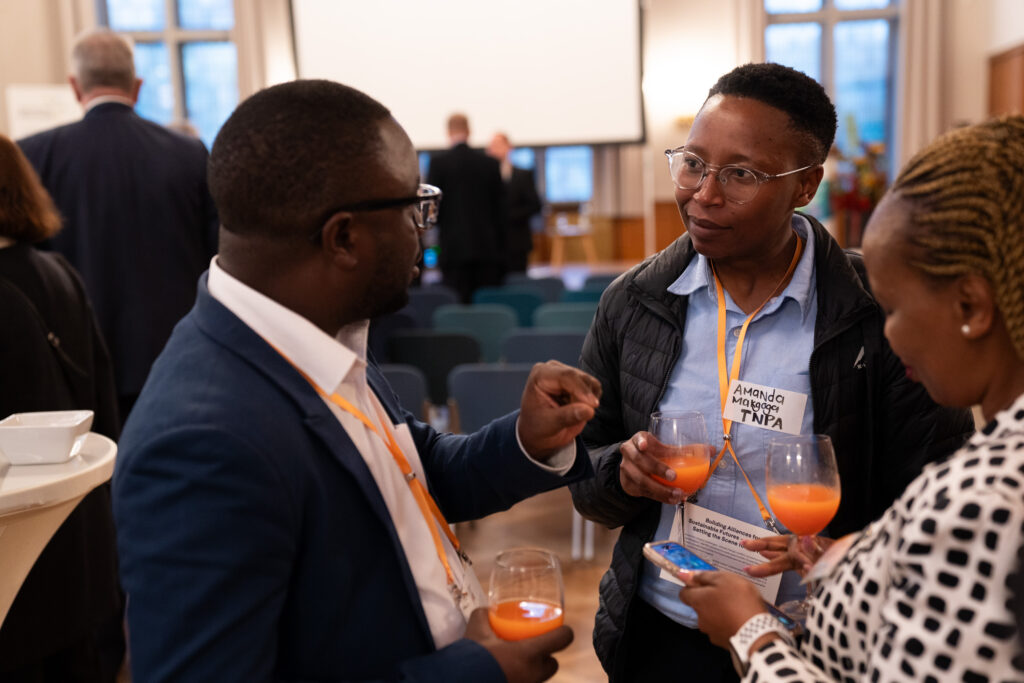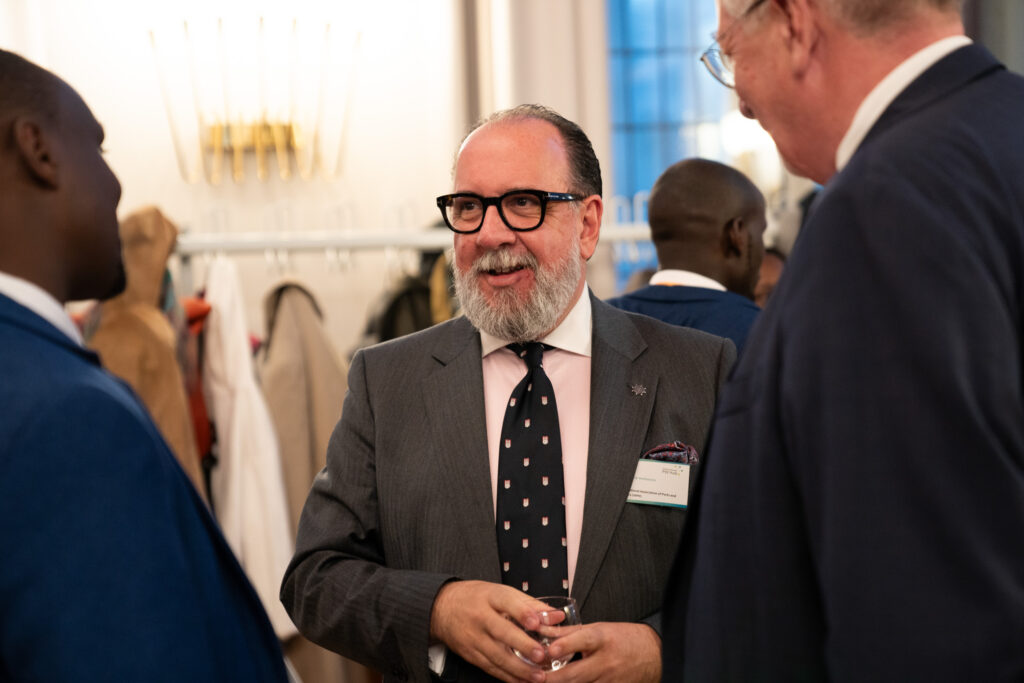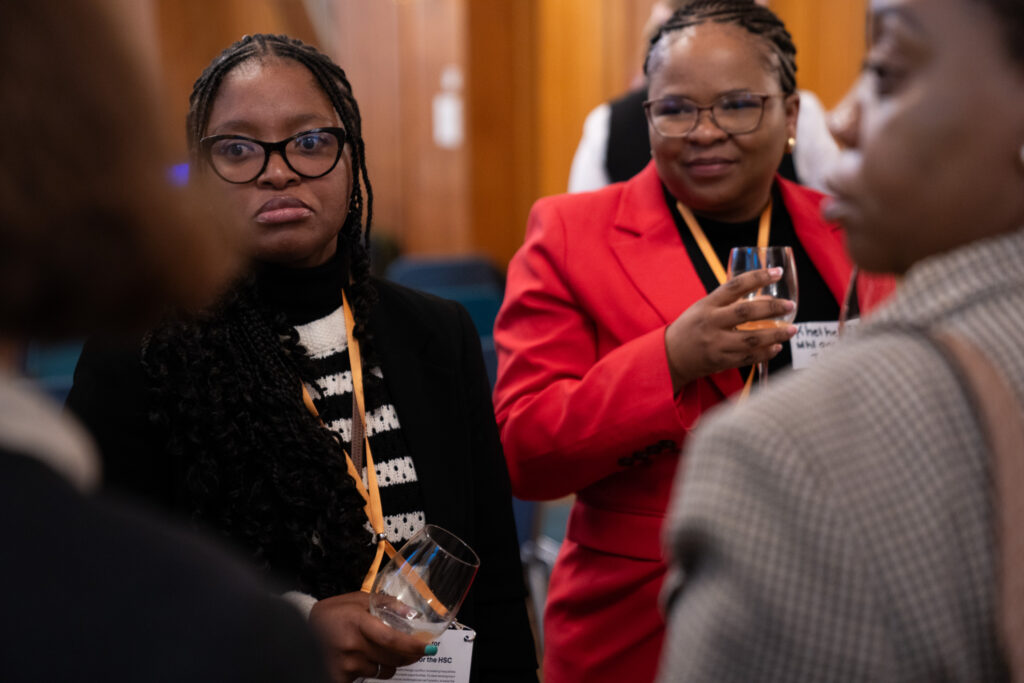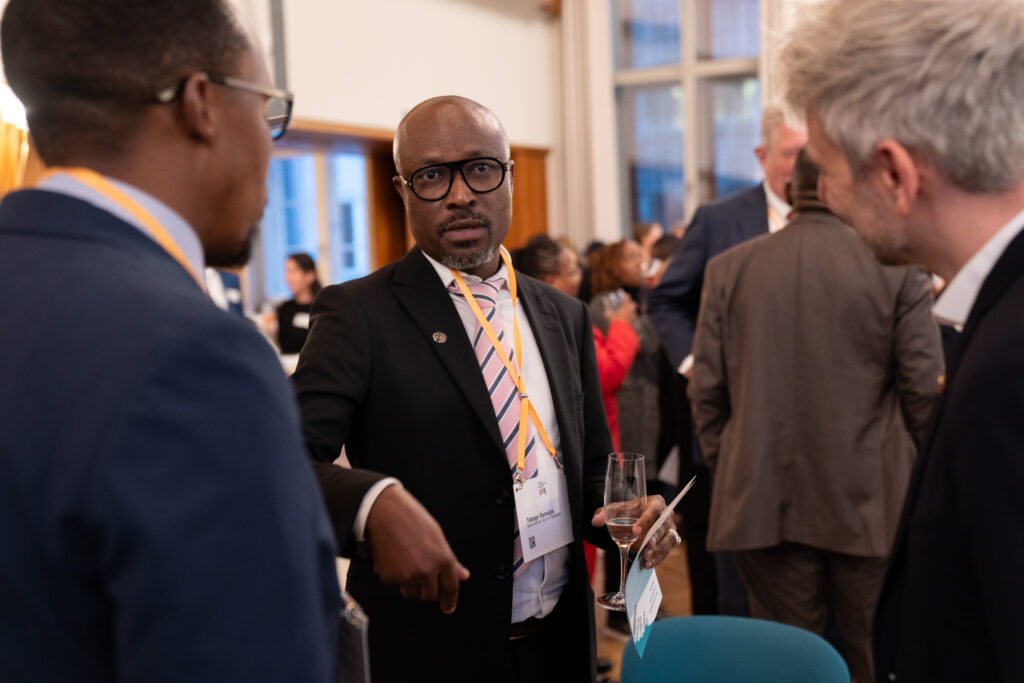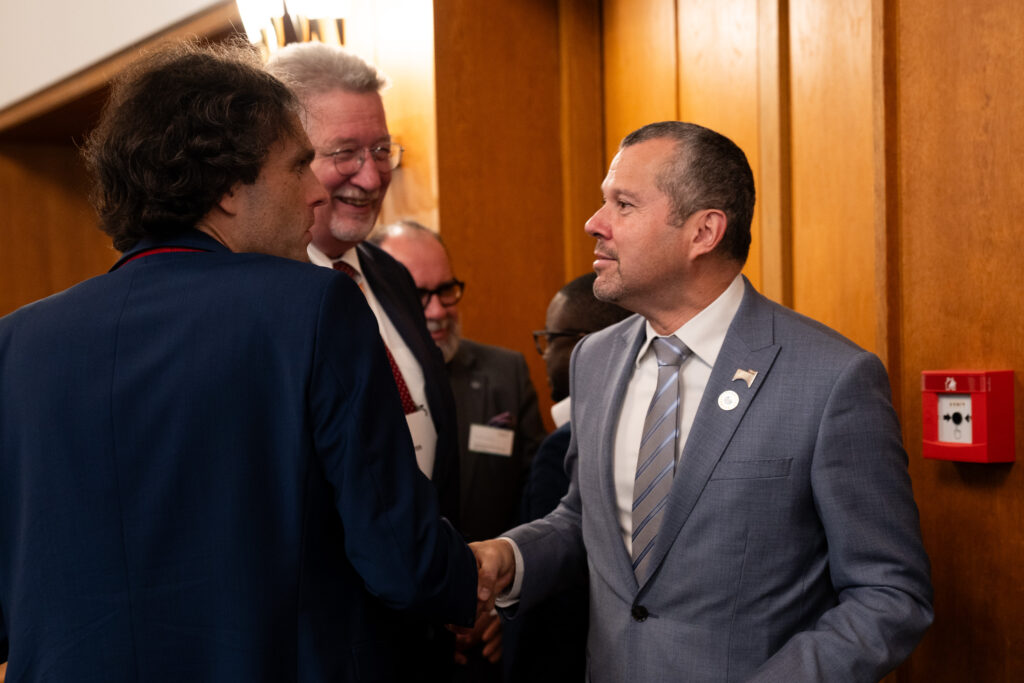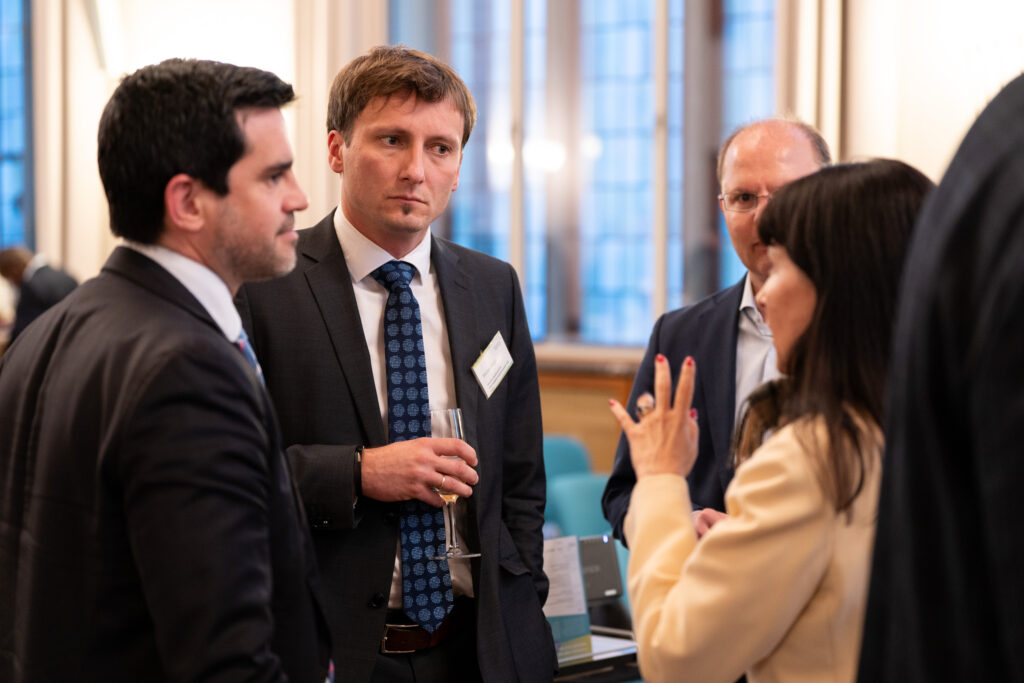“Collaboration is the key to defossilisation in shipping, more so than in other sectors,” agreed speakers and panellists at the PtX Hub’s high-level side event at the Hamburg Sustainability Conference 2024. While the current and future importance of shipping to global logistics and supply chains is undisputed, the sector faces significant challenges to defossilisation due to the lack of a globally binding regulatory framework and effective incentives to reduce emissions.
With perspectives from Germany, the EU, Kenya, South Africa and international organisations, we chartered the challenging topic of how to move forward effectively, taking into account opportunities, challenges and existing solutions such as the H2Global Foundation for the transition to sustainable shipping.
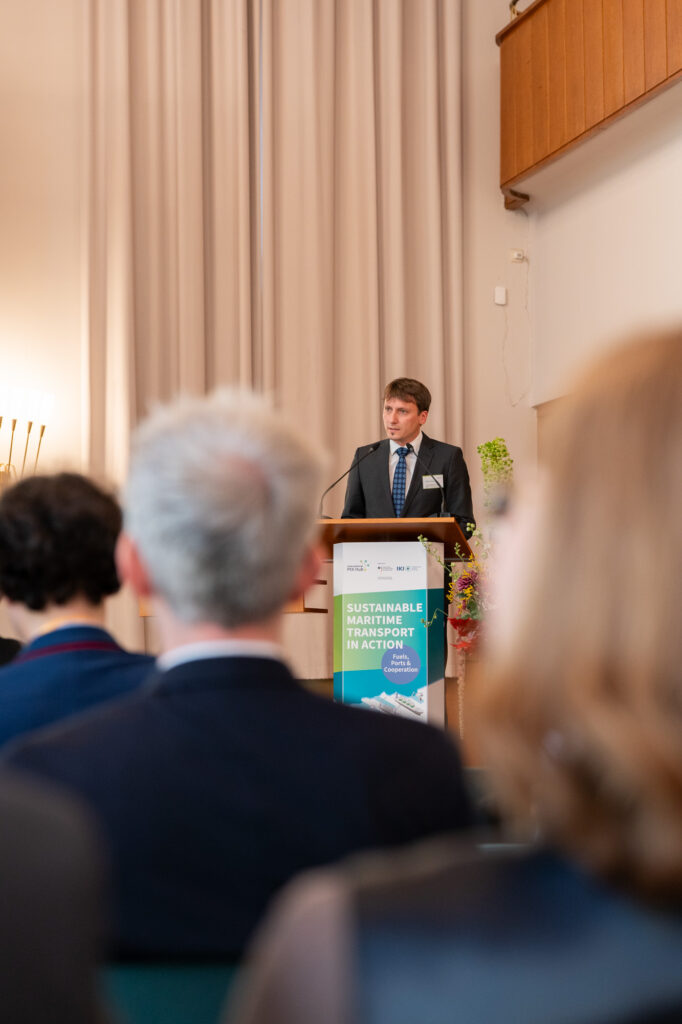
Stefan Mager, Deputy Director Division Climate Change, Environment and Infrastructure at the Deutsche Gesellschaft für Internationale Zusammenarbeit (GIZ) 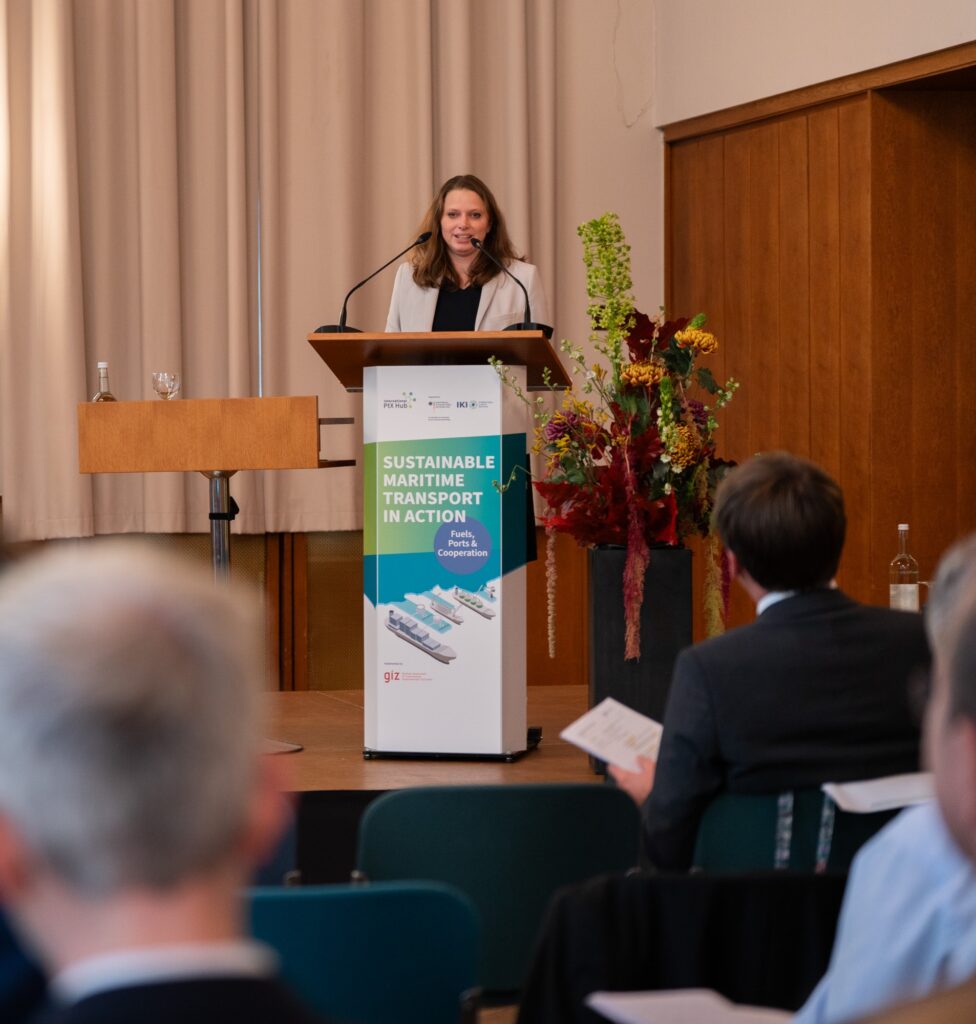
Dr Melanie Leonhard, Minister in the Ministry of Economy and Innovation of the Free and Hanseatic City of Hamburg
Stefan Mager, Deputy Director – Division Climate Change, Environment and Infrastructure & Head of Infrastructure – Energy, Water and Mobility at the Deutsche Gesellschaft für Internationale Zusammenarbeit (GIZ) GmbH, opened the event with a reference to the recent World Maritime Day. This year’s theme was security, making it clear from the outset that sustainable shipping is not just about climate action, but also about issues such as safety, jobs and efficiency.
A warm welcome to Hamburg was given by Dr Melanie Leonhard, Minister in the Ministry of Economy and Innovation of the Free and Hanseatic City of Hamburg. The city is a fitting place to discuss the future of shipping, with its deep-rooted history of maritime trade, innovation and progress. “The Hamburg Declaration on the decarbonisation of global shipping is an important signal: only through increased cooperation can we move forward, for example with initiatives such as Green Shipping Corridors.”
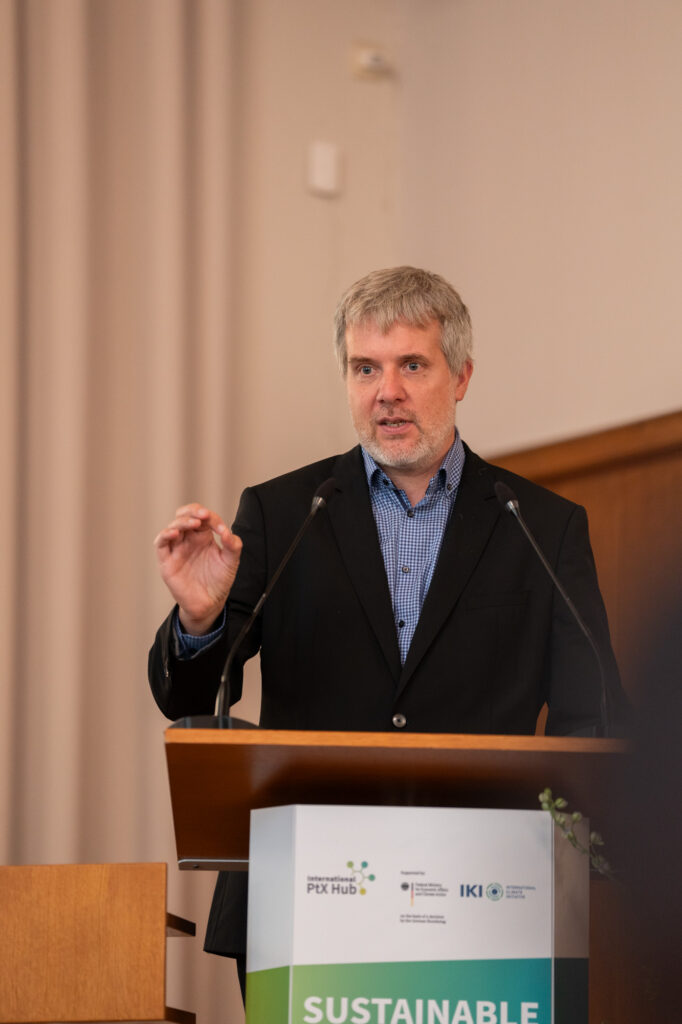
Dieter Janecek, Federal Government Coordinator of Maritime Economy and Tourism in the German Federal Ministry for Economic Affairs and Climate Action 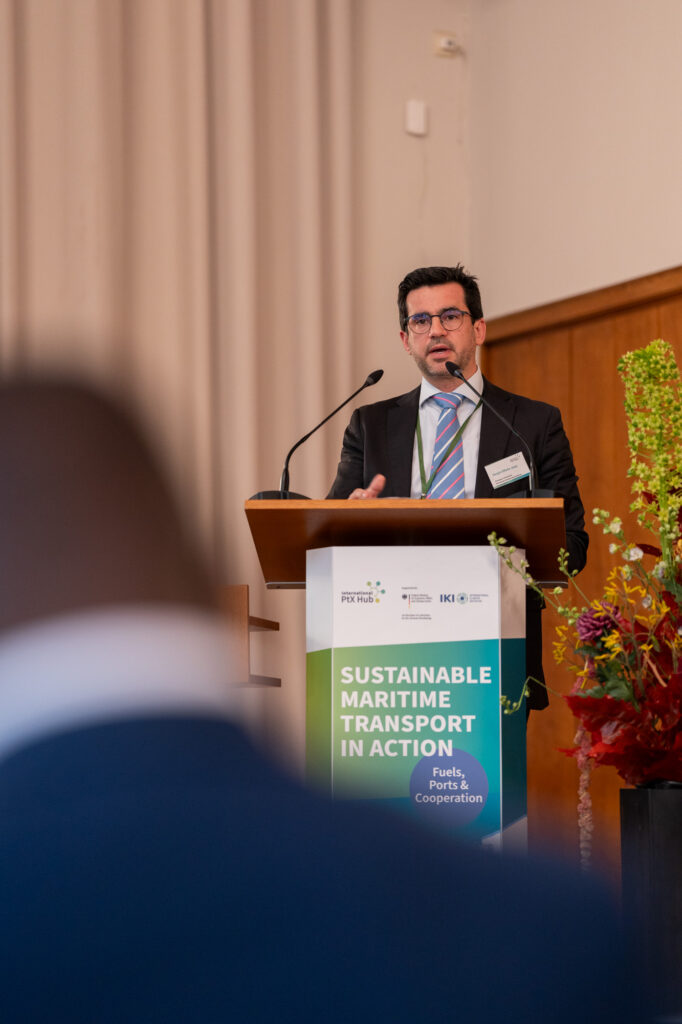
Sergio Oliete Josa, Head of Unit Sustainable Transport and Urban Development at the European Commission Directorate-General International Partnerships
The importance of a level playing field for companies, but also between countries, to accelerate the transition to sustainable shipping was underlined by Dieter Janecek, Federal Government Coordinator of Maritime Economy and Tourism in the German Federal Ministry for Economic Affairs and Climate Action. The regulatory progress made by the European Commission is commendable and will soon be complemented at the national level in Germany: “A National Action Plan for the maritime sector, which we are currently developing in close cooperation with the industry, will set a clear path for a cost-effective transition to net zero in the sector by 2050,” Janecek announced.
The core of these aforementioned EU policies was presented by Sergio Oliete Josa, Head of Unit Sustainable Transport and Urban Development at the European Commission Directorate-General International Partnerships. “Key regulatory measures such as FuelEU Maritime, the Alternative Fuels Infrastructure Regulation and the Renewable Energy Directive aim to create necessary enabling conditions to drive the transition to sustainable fuels for the maritime transport.”
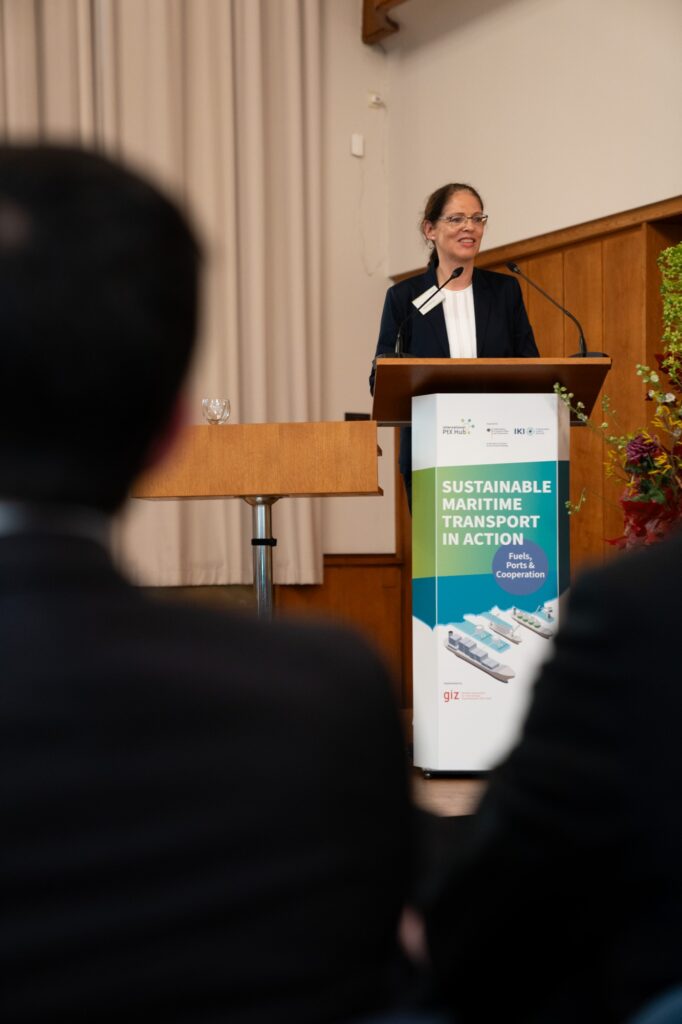
Dr Uta Weiss, Head of Public Affairs at Mabanaft Deutschland GmbH & Co. KG 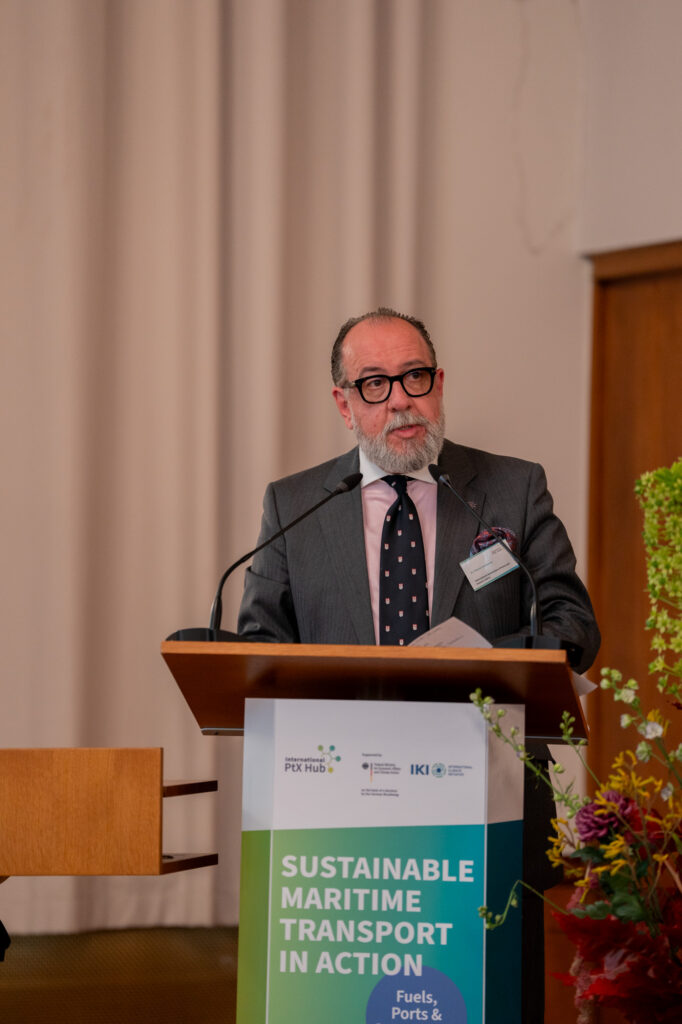
Dr Patrick Verhoeven, Executive Director of the International Association of Ports and Harbours 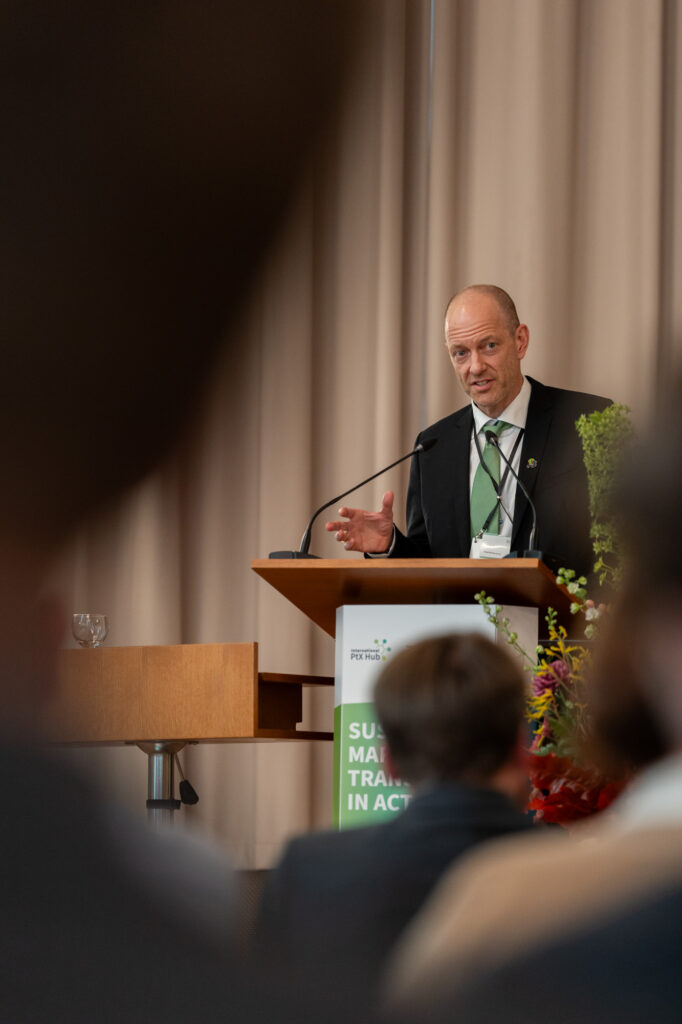
Jesse Fahnestock, Director of Decarbonisation at the Getting to Zero Coalition
Dr Uta Weiss, Head of Public Affairs at Mabanaft Deutschland GmbH & Co. KG, presented the company’s active role in the energy transition. In anticipation of the trajectory that not all renewable fuels will be produced in Germany or Europe, Mabanaft is preparing to build a methanol-ready terminal and ammonia bunkering and transport infrastructure in the Port of Hamburg. The approval documents have been submitted in July 2024 to the Hamburg Authority (Bukea). “Agreements with TUI Cruises and Hapag Lloyd show the strong interest in using this new infrastructure and purchasing ammonia and methanol for cruise and cargo ships.”
Looking at the specific role of ports, Dr Patrick Verhoeven, Executive Director of the International Association of Ports and Harbours (IAPH), highlighted three key dimensions. Firstly, the role of the port in facilitating access to renewable energy through electrification, on-shore power supply and port optimisation, to name but a few. Secondly, the protection of ports against climate change, such as stronger storms, heat waves and sedimentation. And finally, the production, transport and distribution of energy. “The challenge is particularly high for ports in developing countries. They are most vulnerable to the effects of climate change but at the same time there is a huge opportunity for them to play a role in the transport and distribution of zero carbon energy sources.”
“Collaboration is most important when markets are emerging and regulations are evolving. This is where we are now with sustainable fuels,” said the third keynote speaker, Jesse Fahnestock, Director of Decarbonisation at the Getting to Zero Coalition. Green Shipping Corridors are one of the best tools to facilitate this cooperation by coordinating technology options. These initiatives are making progress, but to truly implement a corridor, all parties need to move away from a business as usual mindset, for example by truly sharing costs.
The concluding panel discussion, moderated by Dr Sabrina Schulz, Associate Fellow at the German Council on Foreign Relations, highlighted the need to align global, regional and national policies and to address existing inequalities.
Arsenio Dominguez, Secretary-General of the International Maritime Organization, stressed the need to allow countries to develop their own strategies and fuel preferences. “First movers are called upon to move. There are companies with hundreds of ships that can take the first step. But globally, the majority of shipowners own five to ten ships and we need to help them make their own transition,” he said.
This focus on raising awareness among smaller shipping companies was echoed by Geoffrey Kaituko, Principal Secretary in the Kenyan Ministry of Mining, Blue Economy and Maritime Affairs. “Kenya has the potential to bunker green fuels and strengthen partnerships and trade routes in the region. There is also potential to produce green fuels as Kenya’s installed electricity grid capacity is already over 70% renewable.”
Tsepiso Taoana-Mashiloane, Chief Director, Maritime Safety, Security and Environment, Department of Transport, South Africa, also highlighted South Africa’s immense renewable energy resources. “In addition to the renewable energy production potential, South Africa has eight commercial ports along 3,000 kilometres of coastline. Together with the emerging hydrogen valleys, we should not limit ourselves to bunker green fuels, but produce them in the country.”
Finally, a look at existing solutions by Dr Susana Moreira, Executive Director and Co-Chair of the H2Global Foundation, ended the event on motivating insights. “The H2Global mechanism is working. Following Germany’s pioneering support, Australia, Canada and the Netherlands have joined in, bringing the total funds committed or earmarked to the H2Global mechanism to over EUR 5.8 billion. Transparent, real price signals and aggregation of supply and demand are two of the key benefits of H2Global to bridge the core problems of lack of clear demand signals and willingness to pay.”
More impressions
A photo gallery of the event is available at https://www.picdrop.com/juliagrudda/jNbqqaheKe (password: Pr8UkXGY).
How does the PtX Hub support sustainable shipping?
Collaboration is key to defossilise shipping. This is where the PtX Hub comes in: facilitating interdisciplinary knowledge exchange, bringing decision makers together, matchmaking with investors and providing capacity building to accelerate the transition to green shipping. The PtX Hub facilitates collaboration between international maritime organisations and national shipping stakeholders. This ensures that national and global strategies can be aligned to support both national and global trade and climate action. Through comprehensive training programmes on Power-to-X in shipping, the PtX Hub equips policy makers and industry professionals with the knowledge and tools necessary to realise the transition to sustainable shipping.
